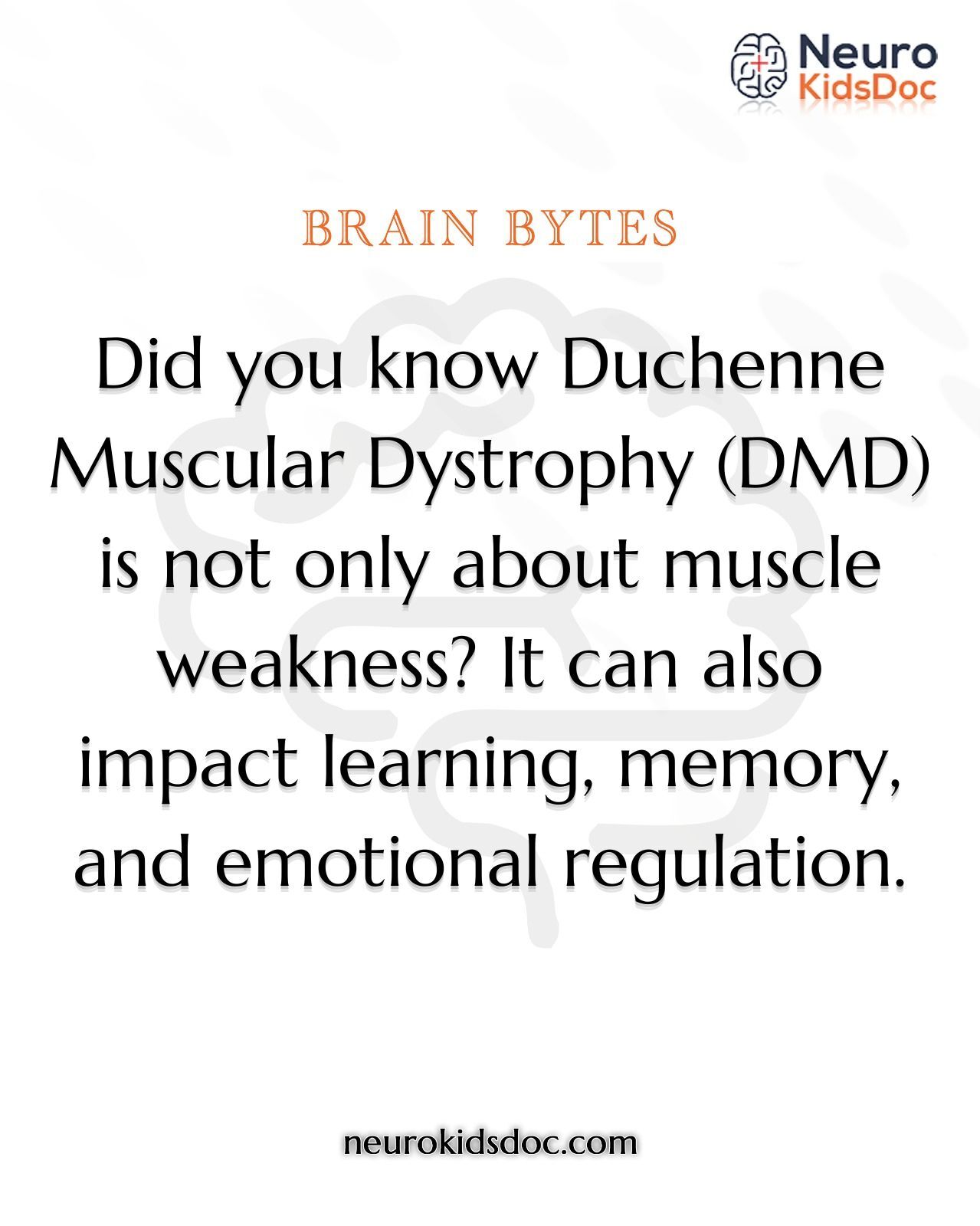Did you know Duchenne Muscular Dystrophy (DMD) is not only about muscle weakness ?It can also impact learning , memory , and emotional regulation
When most people think of Duchenne Muscular Dystrophy (DMD), they immediately think of muscles – weakness, difficulty walking, and the physical challenges children face.
But what’s less widely known is that DMD doesn’t stop at the muscles. It can also affect the brain.
Some children with DMD experience challenges with learning, memory, attention, and emotional regulation.
This happens because the same protein missing in muscles, called dystrophin, is also important for brain development and function. So while DMD is classified as a neuromuscular disorder, its impact can extend into cognitive and emotional health as well.
Understanding this is important for parents and teachers alike.
Early support, through learning strategies, therapies, and emotional guidance, can make a significant difference in a child’s quality of life.
Recognizing the complete picture of DMD allows us to provide care that goes beyond mobility and addresses the child’s full potential.
Awareness is the first step toward better support.



